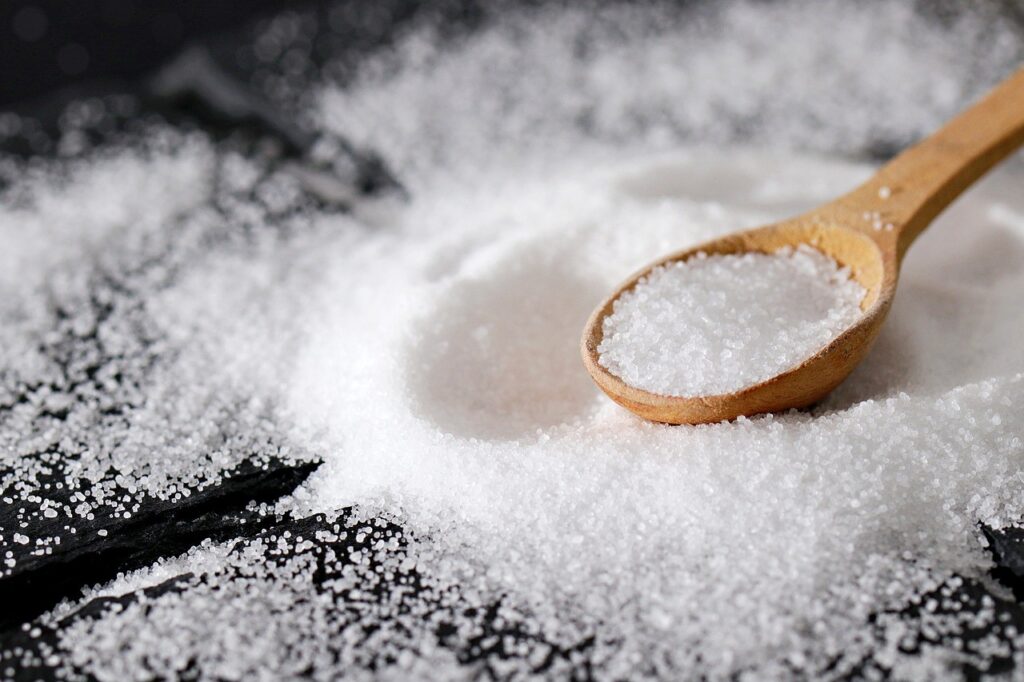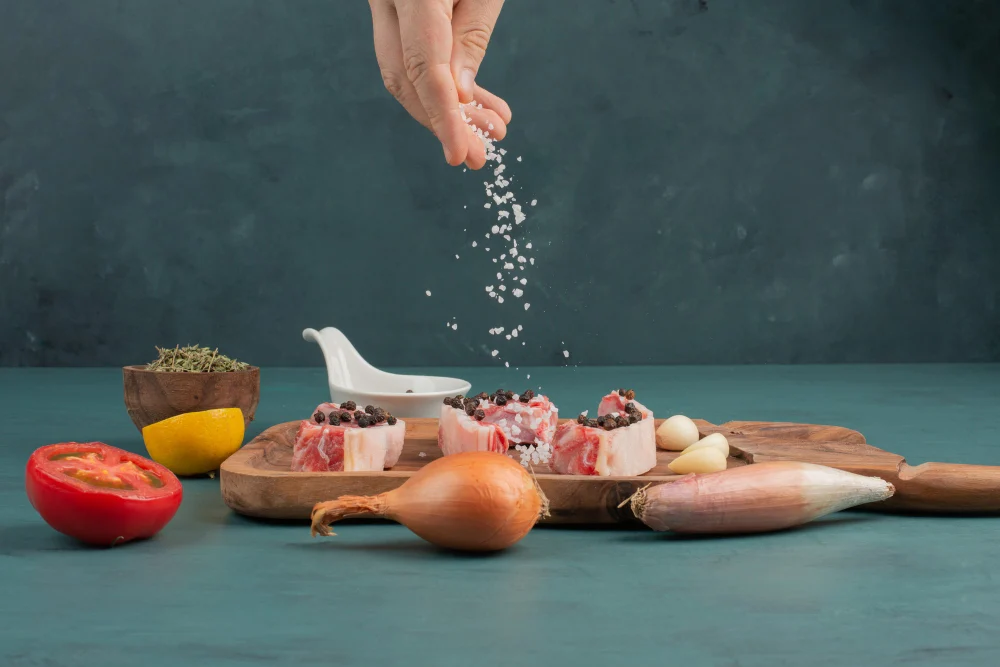You are the salt of the earth

Tommy loved everything his mom cooked. Her kitchen was his favorite place in the house, filled with the delightful aroma of homemade meals. Whether it was crispy pancakes in the morning or hearty casseroles at night, Tommy’s mom always made the most delicious food.
One evening, Tommy rushed to the kitchen, his nose twitching with excitement. Tonight was soup night, and his mom’s vegetable soup was his absolute favorite.
“Is the soup ready, Mom?” Tommy asked, peeking over the counter.
“Almost, sweetheart,” his mom replied with a warm smile. She stirred the bubbling pot, a rainbow of vegetables swimming in the broth. She ladled some soup into a bowl and handed it to Tommy. “Here you go, give it a try.”
Tommy eagerly took a spoonful, but as soon as the soup touched his tongue, he paused. Something was different. The soup was warm and hearty, but it tasted bland. His face scrunched up in confusion.
“Mom,” he said gently, “I think something’s missing.”
His mom took a taste and gasped. “Oh no, I forgot the salt!”
She quickly added a pinch of salt to the pot, stirring it in thoroughly. Then she gave Tommy a knowing look. “Let’s try this again, shall we?”
Tommy took another spoonful. This time, the flavors danced on his tongue. The vegetables tasted richer, the broth more savory. It was perfect.
“Now that’s the soup I love!” Tommy exclaimed, his face lighting up with joy.
His mom chuckled and ruffled his hair. “Thank you for reminding me, Tommy. Even the best recipes need a little salt to bring out their true flavor.”
As they enjoyed their meal together, Tommy realized something important. Just like the soup needed salt, our lives also need a pinch of salt.
Jesus in Matthew 5:13a calls us the salt of the earth. I’m sure you have a box or jar of salt right now in your kitchen. Salt is one ingredient that we all, both rich and poor, use in common. While I might not be able to afford saffron because of how expensive it is, salt is easily accessible.

Now, what do we do with salt?
- Adding Flavor: The most common use of salt today is to add flavor or taste to a meal. Imagine a well-roasted piece of steak without salt—bland, right? Just like Tommy discovered with his mom’s soup, no matter how well-crafted a meal is, without salt it will be bland. So is the world without Christians being Christians. We add taste, flavor, and spice to the world. Just like Tommy’s mom transformed the pot of soup by adding a pinch of salt, we are supposed to transform the lives of those that God has put around us. People should feel better after having a conversation with you.
- Preserving: Another use of salt, which we might not be as familiar with, is its preservative nature. Before refrigerators were common, people had to find a way to preserve their food, especially perishables like fish and meat. One common way was to use salt. Salt has the power to slow down decay and extend the shelf life of food. The world is decaying rapidly, and as the salt of the earth, we are expected to slow down the decay. We are supposed to remind, teach, and point people to the right way of life. As Christians, we are in the world but not of the world. The fact that something is trending or cool doesn’t make it right. We should help clarify the line between good and bad, right and wrong, rather than blur it further. We are at a time when Christians are also trying to blend in to avoid persecution. Revelation 3:15-16 (NIV) says, “I know your deeds, that you are neither cold nor hot. I wish you were either one or the other! So, because you are lukewarm—neither hot nor cold—I am about to spit you out of my mouth.”
- Creating Thirst: Salt also makes people thirsty. Imagine eating salty snacks without access to water—that would be quite uncomfortable. One unique nature of salt is that it makes you thirsty. Our lives as Christians should make people thirst for God. Psalm 42:2a (ESV) says, “My soul thirsts for God, for the living God.” Jesus is the living water. In John 4:14b (MSG), He says, “Anyone who drinks the water I give will never thirst—not ever.” Our existence, actions, and reactions should always make people thirst for a relationship with God.
However, once salt loses its purity, it is no longer salty. For salt to lose its savor, it has to be contaminated. We are in the world but not of the world; if we don’t take our stand as children of God, the world will contaminate us, and we will lose our savor. The second part of Matthew 5:13 (ESV) says, “But if salt has lost its taste, how shall its saltiness be restored? It is no longer good for anything except to be thrown out and trampled under people’s feet.”
As children of God, we need to:
Be watchful of the company we keep: “Do not be deceived: ‘Bad company ruins good morals.'” (1 Corinthians 15:33, ESV).
Study the word of God: “I have stored up your word in my heart, that I might not sin against you.” (Psalm 119:11, ESV).
Prayer always: Never stop praying. (1 Thessalonians 5:17, ERV)
This is such a beautiful read, it was captivating. I love the way you write. More greese to your elbow. We are the salt of the earth
Wow! This is amazing! The use of the story of every day life to illustrate how we are the salt of the earth. I now see myself better as God’s salt for people around me.